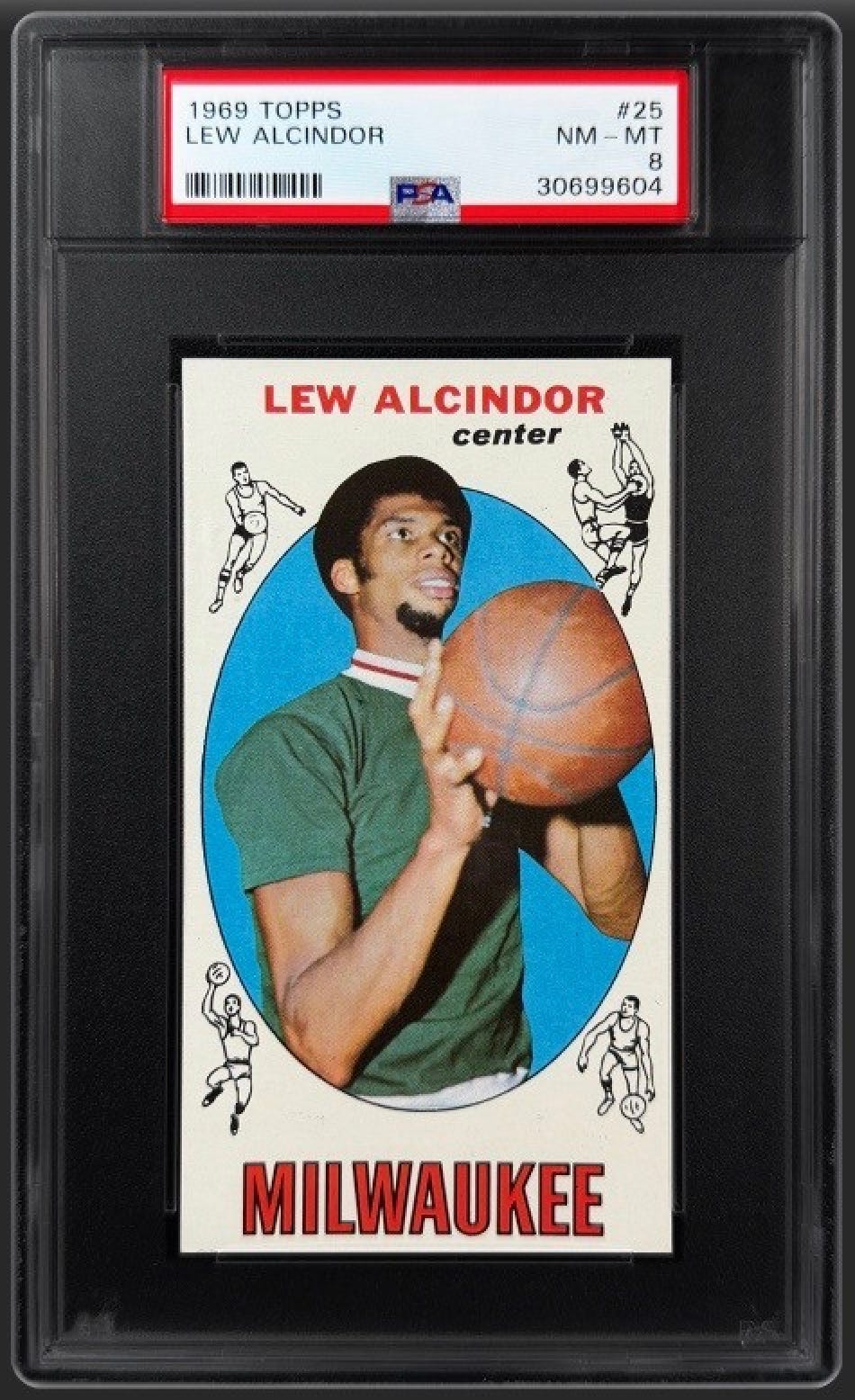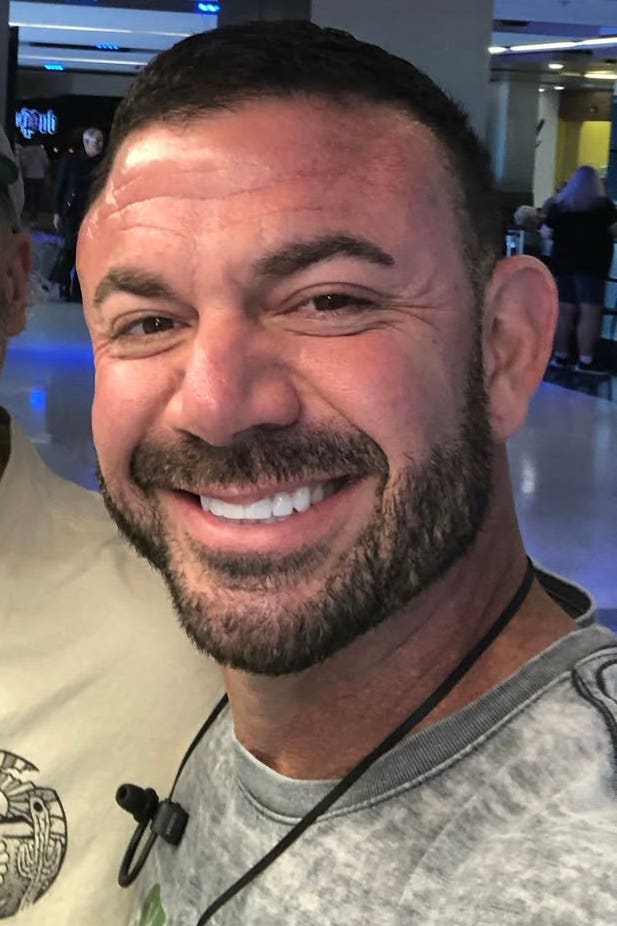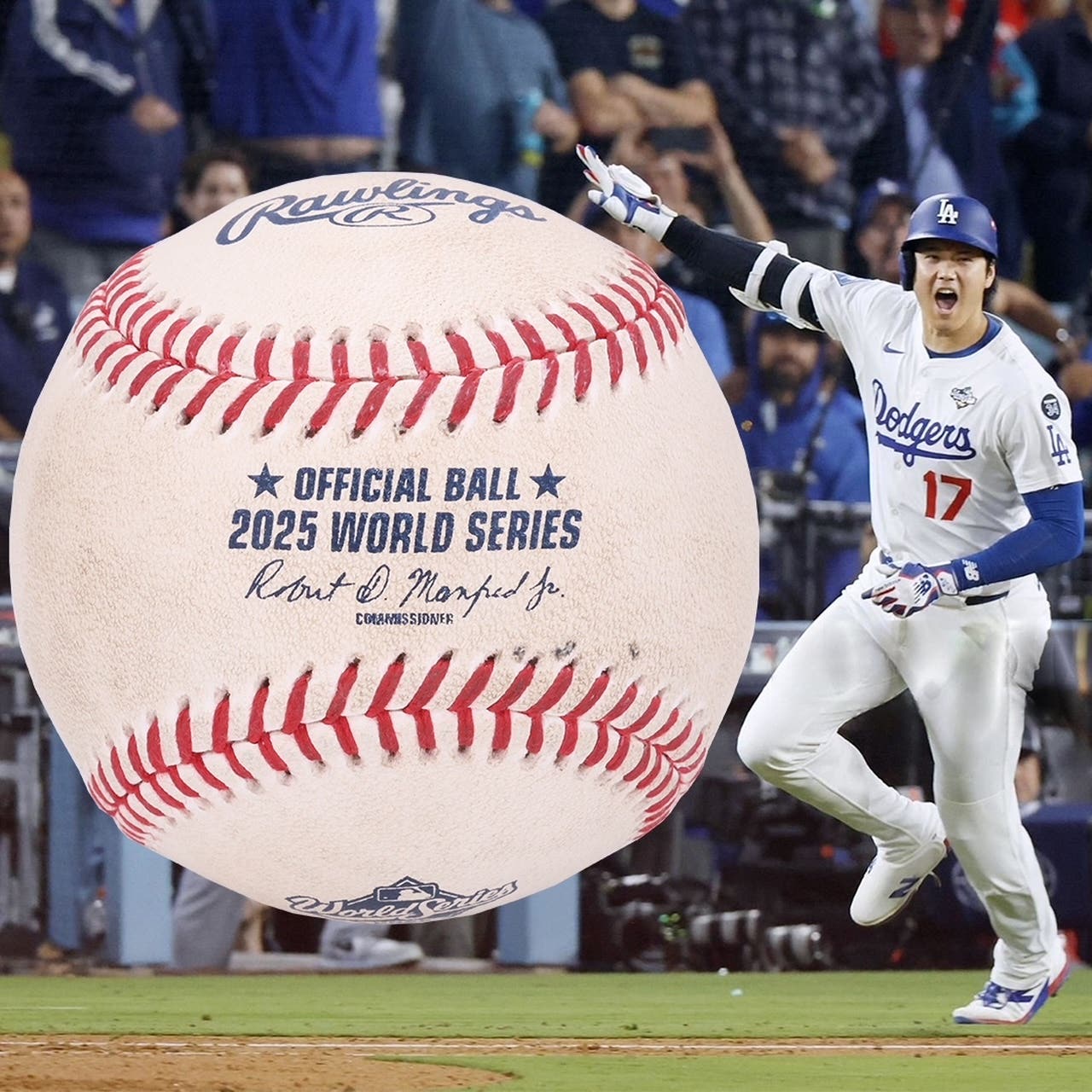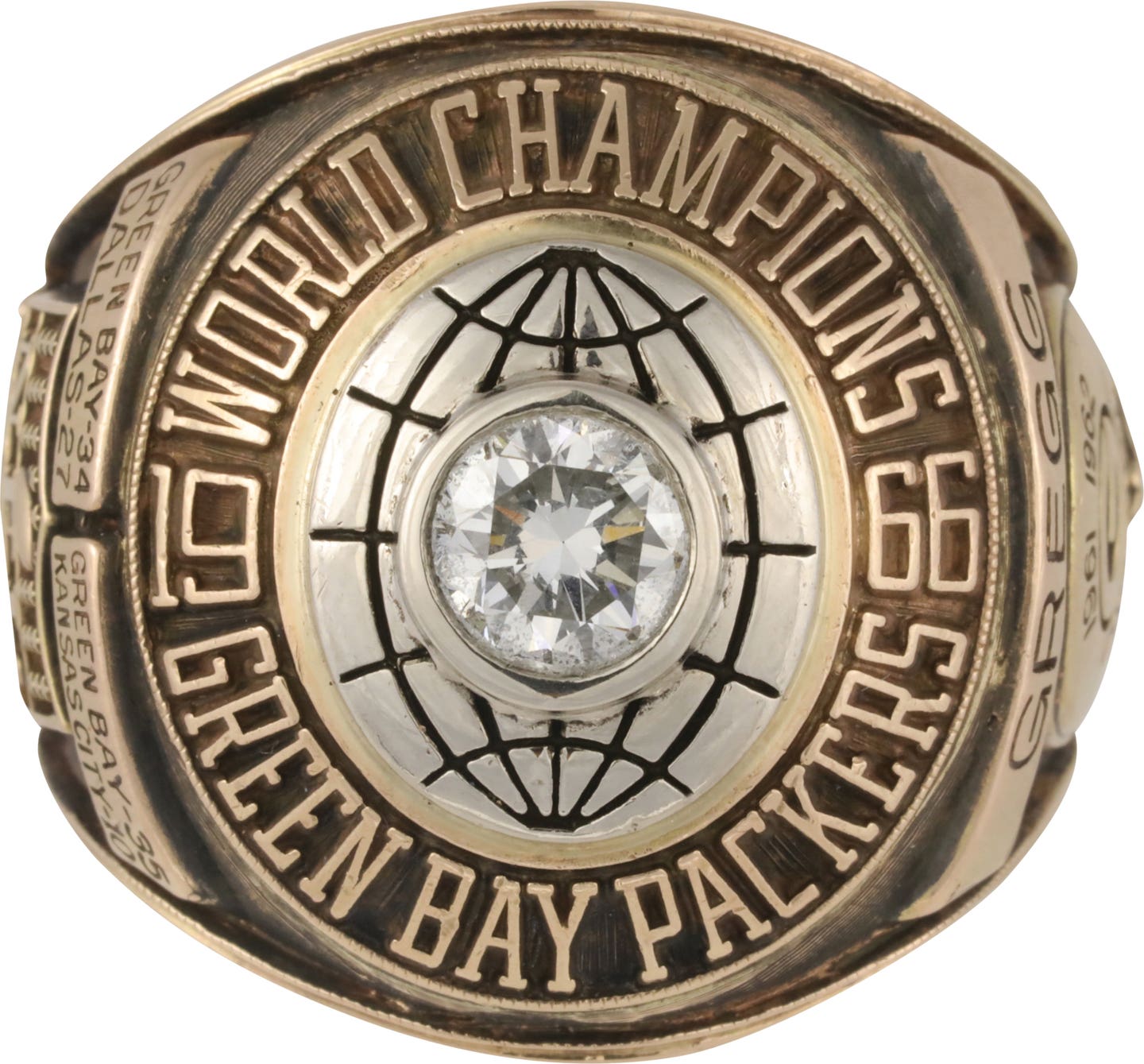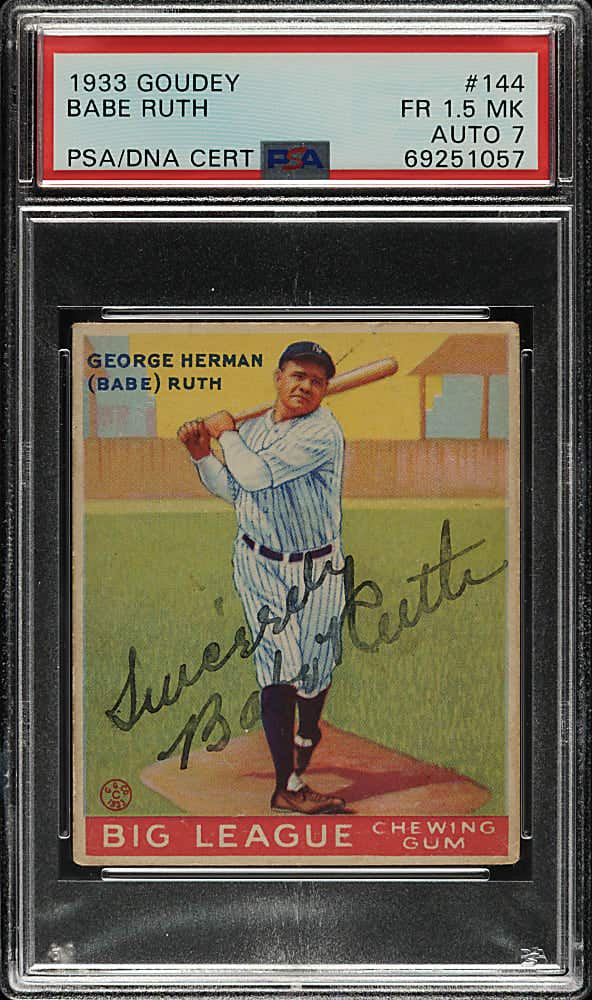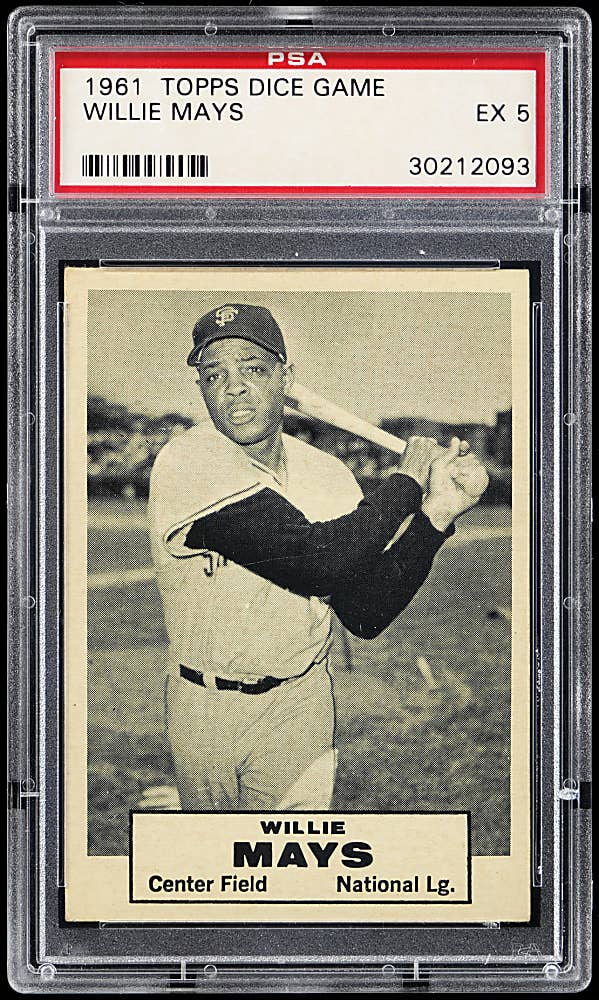January
Donruss Playoff signed Hall of Fame pitcher Sandy Koufax to an exclusive autograph and memorabilia card contract for 2005. The company would later add Henry Aaron and Willie Mays deals, though they would become a moot point later in the year when the company lost its baseball-card license after the 2005 card season.
Market-wide sales for new sports cards have decreased at an average rate of 15 percent for each of the past five years, according to the results of a survey commissioned by Topps, with product proliferation and soaring pack prices identified as the primary reasons for the declines.
Based on the information gathered, Topps president and chief operating officer Scott Silverstein estimates the current size of the sports card market to be approximately $300 million in wholesale dollars. He also noted that Topps' card business itself has declined less than the overall market, thanks to the popularity of a number of its brands.
Dallas-based Beckett Publications, founded in 1984 by long-time collector Jim Beckett, was sold to a newly formed New York-based media company known as Apprise Media for a reported $20 million. The new company is known as Beckett Media LP.
Apprise named Peter Gudmundsson as the new CEO of Beckett Media. Jim Beckett remains with the company as an adviser.
The NBA launched a national advertising campaign entitled "The Game Is In Your Hands Now!" to promote awareness of its licensed trading cards for the second year in a row. Similar to last year, the league used television advertising on Cartoon Network to promote card collecting, as well as print ads in a variety of hobby and non-hobby publications, such as Sports Illustrated for Kids, NBA Inside Stuff, Boys Life and Nickelodeon. The promotion also utilized point-of-purchase displays and giveaways or gift-with-purchase distributions at more than 350 hobby shops, plus displays at the NBA Store and mass retailers Toys R Us, Target, Kmart and drug retailers.
February
MastroNet, Inc. founder Bill Mastro announced he sold the auction giant to the management team backed by Silk Road Equity, a Winston-Salem, N.C., private investment firm, for an undisclosed sum in a deal that still leaves the hobby pioneer as CEO and an active participant in the company's day-to-day operations. The deal, described as a management buyout by MastroNet president Doug Allen, was actually finalized last fall, and puts Allen and the management team at MastroNet in an ownership capacity with Silk Road Equity as majority shareholder. Andrew J. "Flip" Filipowski, another well-known name among advanced collectors and a longtime friend of Mastro and Allen, is the chairman and CEO of Silk Road Equity.
"We didn't want people to think things would change," Allen said in explaining why there was such a gap between the deal closing and the official announcement.
Upper Deck and the NHL Players' Association agreed to a partnership allowing the card company to produce and distribute the NHLPA's Be A Player brand of hockey cards. Originally developed in conjunction with Upper Deck in 1994, Be A Player products had been produced by In The Game for the past several years.
Upper Deck and Curtis Management Group Worldwide agreed to an exclusive, multiyear agreement allowing Upper Deck to utilize CMG's roster of legendary baseball talent in upcoming trading card and memorabilia products. In addition, the companies have agreed on a non-exclusive component that gives Upper Deck Authenticated, the company's memorabilia division, the rights to produce a variety of collectible items.
The list of nearly two dozen players covered in the agreement includes Lou Gehrig, Mel Ott, Satchel Paige, Jackie Robinson, Honus Wagner, Casey Stengel, Rogers Hornsby, Ty Cobb, Don Drysdale, Dizzy Dean, Lefty Grove, George Sisler, Walter Johnson, Christy Mathewson, Mickey Cochrane, Cy Young, Roy Campanella, Johnny Mize, Eddie Mathews, Jimmie Foxx and Thurman Munson. Babe Ruth is included in the deal, but his rights were shared by Donruss Playoff for 2005.
Licensors and trading card manufacturers meeting at the Hawaii Trade Conference voted to pursue another National Trading Card Day promotion. The event was scheduled to take place in April, 2006, but as of December 2005, the event wasn't planned yet due to the many shakeups in the industry.
Upper Deck chairman Richard McWilliam was honored as the most influential person within the sports collectibles industry in the past 20 years at the Hawaii Trade Conference. The award, part of the event's 20th anniversary celebration, also paid tribute to the arrival of Upper Deck's first baseball set in 1989 as the most influential event within the sports collectibles market in the past 20 years.
March
Major League Baseball and the Players Association continued three promotions that reached millions of potential new collectors, most of them youngsters. Baseball coordinated 2.8 million sample packs that included a card from each licensee, plus a Collecting Baseball how-to booklet produced by Tuff Stuff and sponsored by Toys R Us. Those packs were distributed via spring training and during special giveaway days on each team's opening homestand. Additionally, packs were shrink-wrapped with MLB's Opening Day poster giveaway. MLB and the PA are also promoting cards with a TV ad set for Cartoon Network in late April. MLB also conducted its All-Star Game promotion this season, involving hobby stores that received FanFest tickets and a shot at All-Star Game tickets.
Upper Deck, the "Official Trading Card Company of Little League Baseball," announced plans for its second annual national sponsorship of Little League Baseball. This year's program was similar to last season's debut, with a wrapper-redemption program that culminated in a team winning a clinic hosted by Ken Griffey Jr.
April
Rittenhouse Archives landed its first sports license, replacing Fleer as the maker of WNBA cards. "We did approach them, and very aggressively, too," Steve Charendoff said of the multi-year deal with the WNBA. "I simply felt this was a license that I could do a lot with." Charendoff worked at Fleer before starting Rittenhouse.
May
James Spence, longtime lead autograph authenticator for PSA/DNA, started his own company after his five-year contract with PSA/DNA expired.
Fleer Trading Cards closed its doors, ultimately being sold off with surprising speed and leaving millions of dollars in debt and collectors and dealers holding redemption cards that were to be redeemed, but in many cases with an item not worth nearly what was originally promised. The Fleer story was far from a bankruptcy, but very similar, too. The similarity is that Fleer left millions in debt to companies that will get virtually nothing. The difference is that the Assignment for the Benefit of Creditors (ABC) process available in the state of New Jersey allows for an incredibly rapid culmination. Fleer fired its employees in May, filed for ABC in June and was almost entirely sold off to benefit the creditors by September, far quicker than a bankruptcy, which often takes years.
Fleer's card inventory plus its office furniture sold for about $1 million, with the cards destined for repack containers at retail and hobby stores. Its trade names and die-cast business were sold to Upper Deck for $6.1 million.
The assignee who ran the ABC process worked hard to set aside cards that redemption-card holders could claim. They won't receive the card their redemption card promised, but they'll get a randomly selected autograph or memorabilia card. The assignee's staff pulled 30,000 cards out of Fleer's inventory to facilitate that process.
June
The group of sports equipment authenticators who had been working with SCD Authentic announced details of their new operation. Dave Bushing, Troy Kinunen, Dan Knoll, Robert Orsimarsi and Dave Grob are now operating MEARS - Memorabilia Evaluation and Research Services.
The MEARS authenticators and officials at F+W Publications jointly agreed to end the SCD Authentic program on June 1 due to logistical concerns.
The original 1919 contract that detailed the sale of Babe Ruth from the Boston Red Sox to the New York Yankees came just shy of becoming the latest member of the $1-million sports memorabilia club. Still, the $996,000 final sale price (including buyer's premium) at the Sotheby's/SportsCards Plus auction in New York City set a record for the highest selling sports document of all time.
The winning bidder was Peter Siegel, president of Gotta Have It! Collectibles in Manhattan. Siegel said he was prepared to bid even higher on the contract, calling it "the most important document in sports history."
July
A Babe Ruth game-used jersey from the early 1930s sold for $940,000 (including buyer's premium) in Grey Flannel Auctions' most recent sale, a record price for a sports jersey. A pair of game-used pants that came with the jersey sold separately for $94,618. Together, the two items generated $1.03 million, while the auction itself generated $3.34 million, a record for Grey Flannel.
Major League Baseball and its players association announced Donruss Playoff, which in 2001 was brought back into baseball cards, is back out. The MLBPA press release said under the new agreements with Topps and Upper Deck, baseball cards will be designed, marketed and promoted to attract kids and new consumers while still providing excitement and value to the current collector. Evan Kaplan, MLBPA director of trading cards and collectibles, said, "Our licensees recognized the need to make improvements in every aspect of the trading card business." Said the press release, "With only two baseball trading card manufacturers, the new licensing landscape will focus on strong brand presence, longer shelf life and fewer, stronger products in the marketplace to simplify the retail experience for consumers. Emphasis on marketing, promotion and product development to attract new purchasers, especially kids, will bring renewed excitement to the category."
With Fleer's exit, the total number of baseball brands will be cut to about 40 for the 2006 season. The card season was also delayed, so new sets won't be out until spring training time in February.
The licensors also clarified new rookie-card rules, Topps will still be allowed to put minor leaguers into its Bowman brands, but only as inserts, so they can't carry rookie-card designations under current price guide definitions. And beginning with the 2006 sets, a new "Rookie Card" logo will appear on the cards of players who make their Major League Baseball debut, ideally giving those cards clear-cut rookie-card status in the hobby, and not their minor-league subset cards.
O.J. Simpson's appearance at a show booth made news at the National Sports Collectors Convention in Rosemont, Ill. Simpson was escorted from the show floor after the Hall of Famer made an unannounced visit to an exhibitor's booth and began signing autographs. Simpson was on the show floor for about 75 minutes and signed 115 autographs (at $100-$125 apiece) during that span. Simpson appeared at the booth of Florida-based Justin Communications, yet dealers are not allowed to have unscheduled autograph appearances in their booths, said convention director Bob Byer, and Byer eventually kicked him off the show floor. Simpson and his cronies moved their signing to a hotel across the street. Meanwhile, the show got generally positive reviews from dealers, though much of the success was dealer-to-dealer and attendance was generally considered modest at best.
August
SCD unveiled details of a counterfeit card discovery centering on 1980s Star Co. Basketball, Kenner Starting Lineups, Sportscasters and minor league baseball. Card dealer Steve Taft spearheaded the investigation, which centered on cards graded by Gem or its "premier" Gem Elite service. Taft first noticed the problem on eBay about a year earlier. Taft began making sample buys, and they proved the counterfeit status.
Gem Grading is owned and operated by Timothy Lorber, who also runs www.startcollecting.com. Lorber told SCD he was disappointed Gem Grading holders contained counterfeits and he offered a money-back guarantee.
Phillip and David "Doc" Scheinman, who ran Smokey's Sportscards in Las Vegas, decided to avoid their jury trial set for September by agreeing to plead guilty to federal felony wire fraud charges relating to the sale of sports memorabilia.
The Scheinmans pled guilty in federal district court in San Diego, home of Operation Bullpen, the FBI's investigation into counterfeit cards and autographs. In addition to their store in Las Vegas, the Scheinmans sold on eBay. Their sentencing was scheduled for Dec. 13; sentencing guidelines, which are usually closely followed by the sentencing judge, suggest Phillip will get 15-21 months in prison, while David, his father, will receive 6-12 months. Phillip has been fined $30,000, while David was fined $10,000. They were also sentenced to pay precisely $9,723.50 each in restitution, all earmarked to five victims who were utilized by the FBI in the investigation.
The Smokey's case puts an end to Phase I of Operation Bullpen, stemming from the raids of Oct. 13, 1999. The ongoing Phase II involves searches conducted in the spring and summer of 2002, and that is winding down, as well.
September
Topps and its dealers were thrilled with the positive feedback they received from hobby retailers for the company's Turn Back The Clock promotion that began Sept. 10 with an offer of special five-cent packs of Topps Football cards. "We've received a ton of phone calls and e-mails telling us how well the event went at stores," said Topps spokesman Clay Luraschi. "We definitely had the participation (from the retailers) we had hoped for and the program was very popular with collectors, as well."
The promotion, the highest-profile element marking the 50th anniversary of Topps Football, is now continuing with a season-long, weekly card giveaway for anyone who purchases a pack of any 2005 Topps football product. The cards in the five-cent packs and the weekly card offerings combine to form a special 22-card set.
Upper Deck announced it is venturing into sports memorabilia auctions, with two major auctions per year planned, the first in the spring of 2006. What is perhaps most interesting about the business model is that Upper Deck plans to not only auction athlete experiences (meet and greets, etc.), high-end signed items from Upper Deck Authenticated, and original artwork from its archives, but it also plans to bring in consignments and utilize third-party authentication companies just like the typical sports auction companies. "Upper Deck Auctions will be a full-service sports memorabilia auction house," said Mike Phillips, hobby veteran and current senior hobby sales manager.
October
The new-look NHL, featuring several new rules, the hottest young player to hit the league in years and the return of Mario Lemieux, debuted and collectibles were rejuvenated for the sport. "This is going to be an unprecedented season," predicted Joe Fallon, Upper Deck's director of product development. Typically, in a normal year, there are about 10-to-20 top-tier rookies whose cards are highly sought after, Fallon said. This year, there might be 30 or more because two years of rookies were debuting, headlined by Sidney Crosby.
Upper Deck began the season as the NHL's lone card licensee. Topps and others have expressed interest in a hockey license, the NHL's Dave McCarthy confirmed, but neither he nor the NHLPA has indicated if a new licensee will be added for this season.
November
Hollywood Collectibles of Hollywood, Fla., re-signed Dwyane Wade to a second autographs and memorabilia deal which is exclusive in the non-card market (Topps has Wade for such things on cards).
Topps signed an agreement with Encore Sports and Entertainment to secure the exclusive rights to use Mickey Mantle in its baseball card products in 2006. The multi-year agreement, which goes into effect Jan. 1, grants Topps exclusive rights within the MLB trading card category for all trading cards, including insert cards, memorabilia cards, cut signature cards and the use of Mantle's image on packaging and advertising. Mantle will make his first appearance in 2006 Topps Baseball, shipping Feb. 7.
Topps has not had the rights to use Mantle in its products for several years. With access to the Mantle family's vast photo collection and unique memorabilia pieces, including one of the Hall of Famer's remaining first baseman's gloves, Topps said it plans to chronicle Mantle's life in great detail through its cards.
Upper Deck announced it has filed suit against dealers it says have been "swatch switching" some of its memorabilia cards and purveying those cards' sale. The practice usually involves removing a plain uniform swatch from a star player's card and replacing it with a premium swatch (a patch or multi-colored jersey piece), increasing its perceived rarity and value but making the card a non-game-used counterfeit.
Meanwhile, a new development in the augmenting of memorabilia cards popped up this year: Photocopied autographs glued onto previously non-memorabilia cards, with the seller identifying the signature as a "reprint."
The National Sports Collectors Convention board of directors ousted Bob Byer from management of the National, terminating his contract three years early because of what it called a "breach" of unspecified nature. "Bob Byer no longer has the license to run The National, and right now, the executive directors - John Broggi, Mike Berkus and Bob Wilke - are handling the day-to-day operations," NSCC Board president Etta Hersh told SCD. "Hopefully we'll get someone that will be able to handle the negotiations of all the contracts. The one thing that I will make very clear is that the NSCC Board is not running the National. We oversee the National, but we are volunteers, we do not run the National." Byer had a contract to run the show through 2008. Hersh said it's the board's view that he breached that contract, but she declined to specify how. Byer told SCD, "It's just a difference of opinion, and I'm not going to comment on it at this time."
December
An Orange County, Calif., judge did not award damages in a lawsuit brought against Collectors Universe by former company executive William Miller, instead suggesting the parties take the case to an appeals court for a damage verdict.
Miller, former editor of Autograph Collector magazine, filed suit in August 2004, alleging that Collectors Universe placed his name and signature on PSA/DNA Certificates of Authenticity without his permission. Miller's suit alleged a violation of his right to privacy by misappropriating his name.
The jury hearing the case declared in early November that Collectors Universe used Miller's name on 14,060 certificates of authenticity without his permission. The jury awarded Miller $14,060, or $1 per certificate, ruling that was the profit earned by Collectors Universe for each use of Miller's name.
However, in his final ruling, the judge basically declared a mistrial in the case as far as the determination of statutory damages. Under terms of the California Civil Code, Miller would be eligible to receive $750 for each unauthorized use of his name. That would have resulted in a judgment of more than $10 million, an amount the plaintiffs touted in a press release immediately after the jury verdict - a release the judge quickly ordered them to retract for being misleading.



